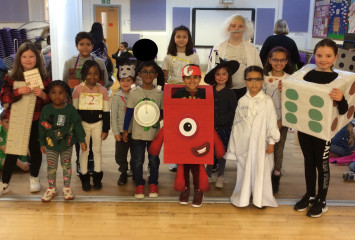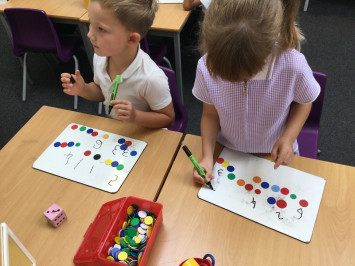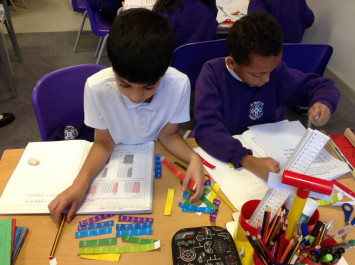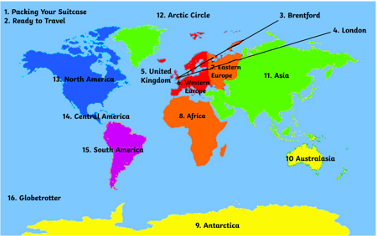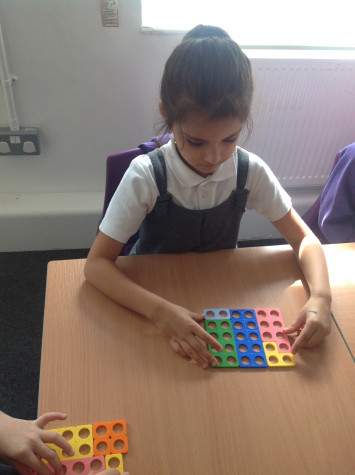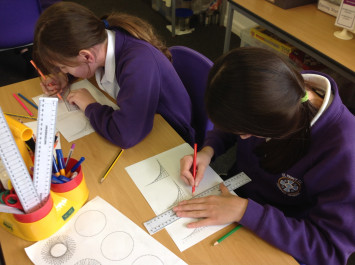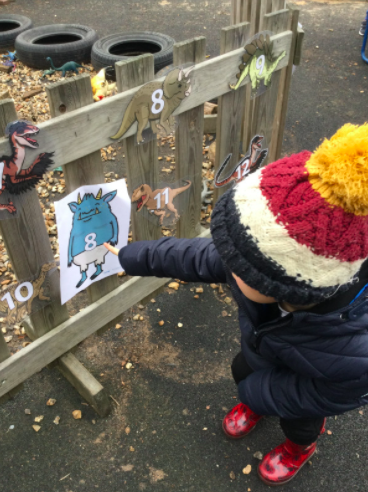Mathematics
We teach Mathematics following the 2014 National Curriculum.
In the Early Years, teachers provide a range of activities to support counting and early number skills. The children use stories, rhyme, toys and objects to develop counting and calculation skills. The children also learn about shape and early concepts of symmetry, collecting and manipulating statistical information and about the capacity, mass and size of common objects around the classroom. The children learn to form numerals and to write numbers.
In Key Stage 1, children have a daily mathematics lesson. They build upon the experiences of the Early Years and learn to make simple calculations, to develop their understanding of number, shape and statistics. They learn key number facts, such as number bonds, learning to recall them as a support for mental calculation. The children discuss and practise solving mathematical puzzles and problems.
In Key Stage 2, children have a daily mathematics lesson. They extend their ability to manipulate number and to calculate. They build their known number facts to facilitate more complex mental calculation. The children learn to use mathematics to solve puzzles and problems. They consolidate and extend their understanding of shape and statistics.
Details of the programme of work in each year group can be found below and on the year group pages of the website.
Maths Passports
The Maths Passports are a strategy used to develop and improve children’s mental maths skills.
Each child (from Nursery to Year 6) will be allocated a passport with a series of targets set out in cities, countries or continents. As children progress through each passport, the targets get progressively more challenging, with an aim to develop basic number skills and instant recall in all objectives. All passports are matched to meet the individual needs of children, which will allow them to progress through the passports at their own pace.
Please take the time to find out what Maths Passport Target your child is on and by using the information on the school website about Maths Passports, please support them in practising their skills. This could be in the car, at teatime, in the bath, before bed… anytime! It does not need to be a formal, sit down session.
Below you will find copies of all the passports, which include details of the requirements for each one as well as a parent guide for the entire scheme.

